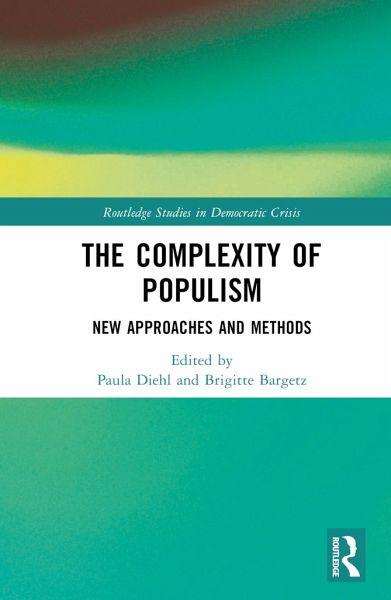
The Complexity of Populism
New Approaches and Methods
Herausgegeben: Diehl, Paula; Bargetz, Brigitte
Versandkostenfrei!
Versandfertig in 6-10 Tagen
144,99 €
inkl. MwSt.

PAYBACK Punkte
72 °P sammeln!
This book explores the mechanisms and elements of populism to develop new theoretical and methodological approaches. Much as populism has been researched, it remains a contested notion without coherent definition and methodology and shaped by dimensions such as ideology, communication style, discourse, mobilization, and organization. It has simultaneously mobilized emotions, produced symbols, affected subjectivity and gender relations, and can manifest itself in different ways and appear in hybrid forms, such as in the cases of Silvio Berlusconi, Hugo Chávez, and Donald Trump. International e...
This book explores the mechanisms and elements of populism to develop new theoretical and methodological approaches. Much as populism has been researched, it remains a contested notion without coherent definition and methodology and shaped by dimensions such as ideology, communication style, discourse, mobilization, and organization. It has simultaneously mobilized emotions, produced symbols, affected subjectivity and gender relations, and can manifest itself in different ways and appear in hybrid forms, such as in the cases of Silvio Berlusconi, Hugo Chávez, and Donald Trump. International expert contributors explore how such a variety of phenomena can be explained and analyzed, expanding the scope of populism research by proposing a multidimensional and complex understanding of populism. They argue for a greater epistemological differentiation and propose a methodology that integrates different fields of politics. This complex approach makes it possible to analyze populism as a multifaceted phenomenon and to understand how populisms affect politics and society. Aimed at postgraduates and researchers in populism as well as scholars in political science and sociology, media, communication, cultural, gender, and global studies, the volume also contributes to a better understanding of manifestations of right-wing and authoritarian populism in the twenty-first century.












